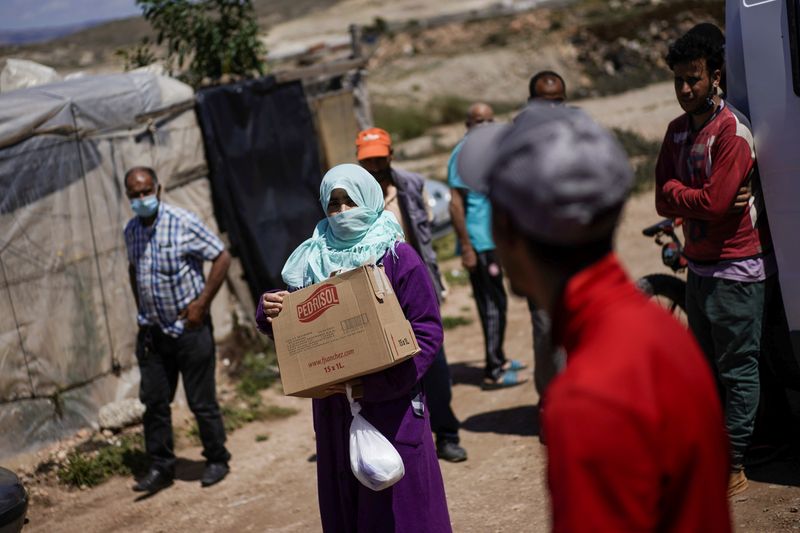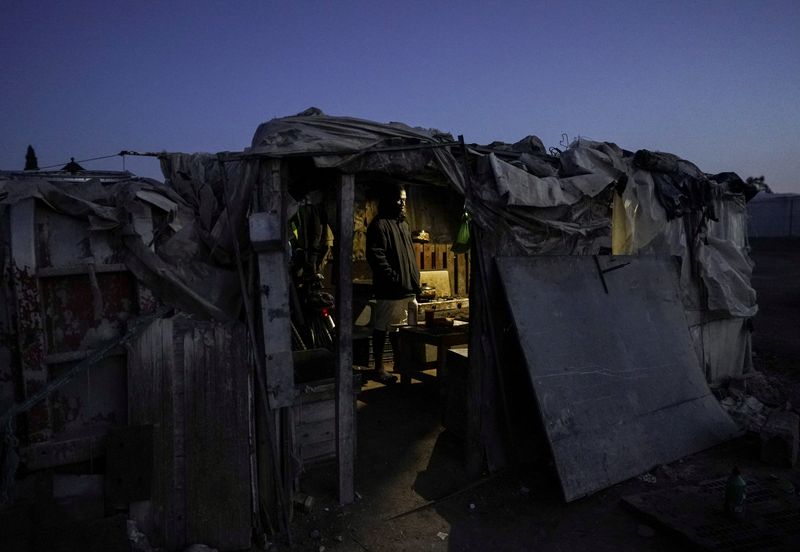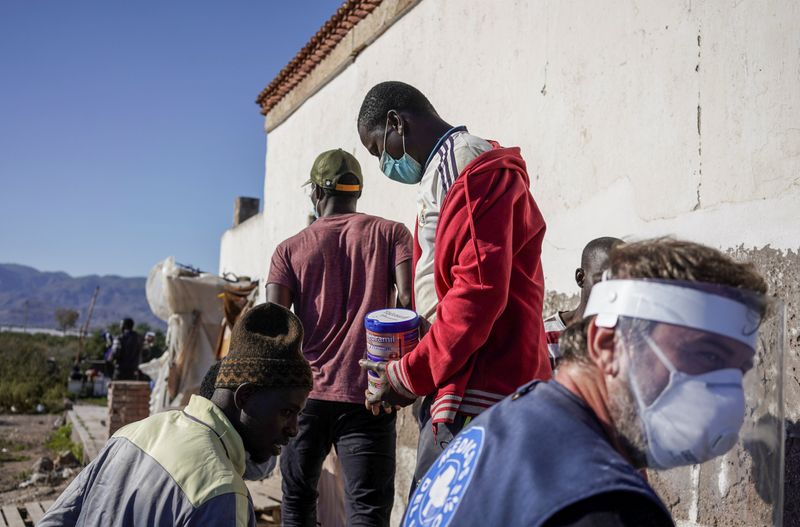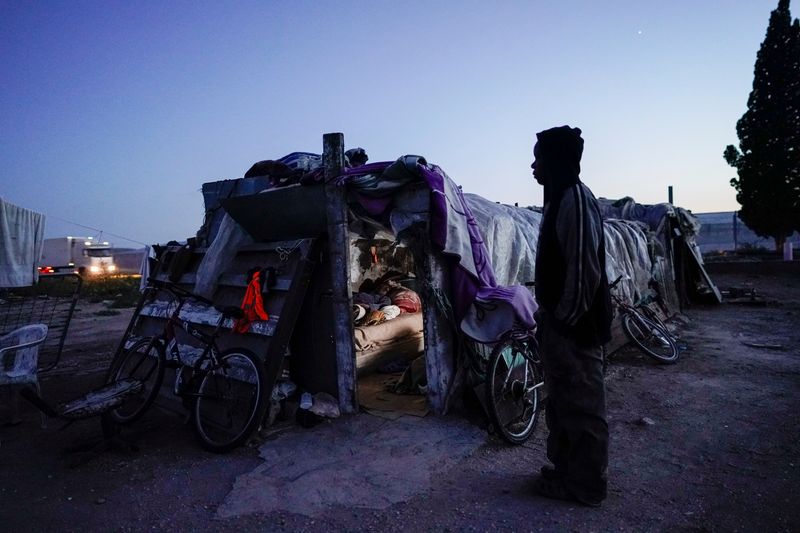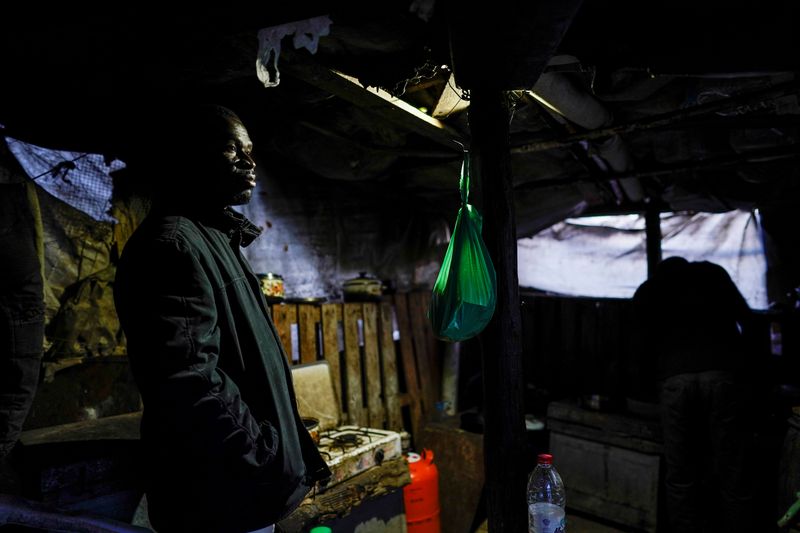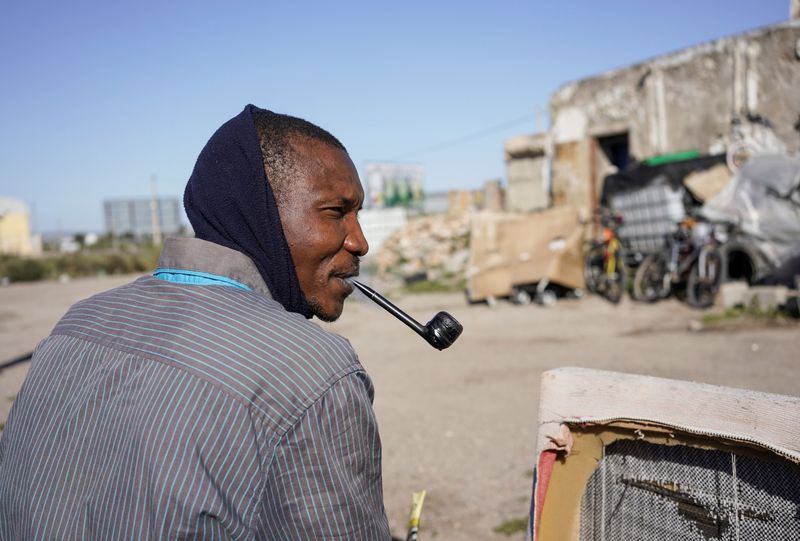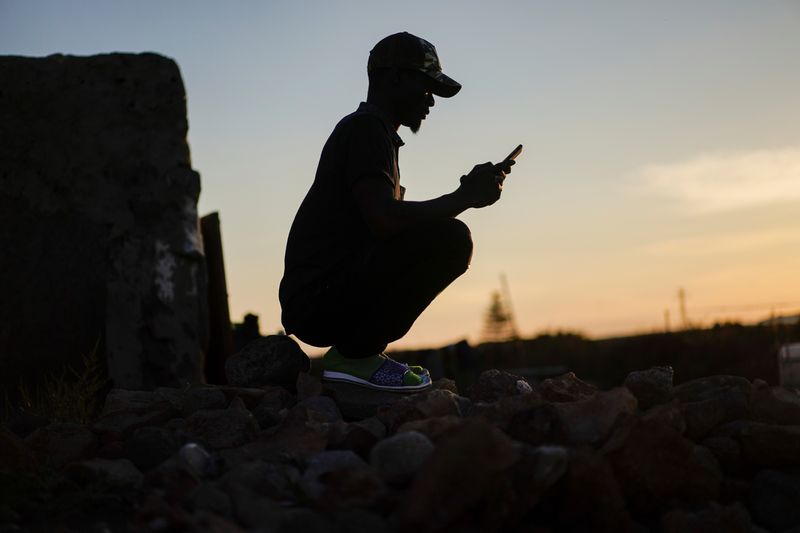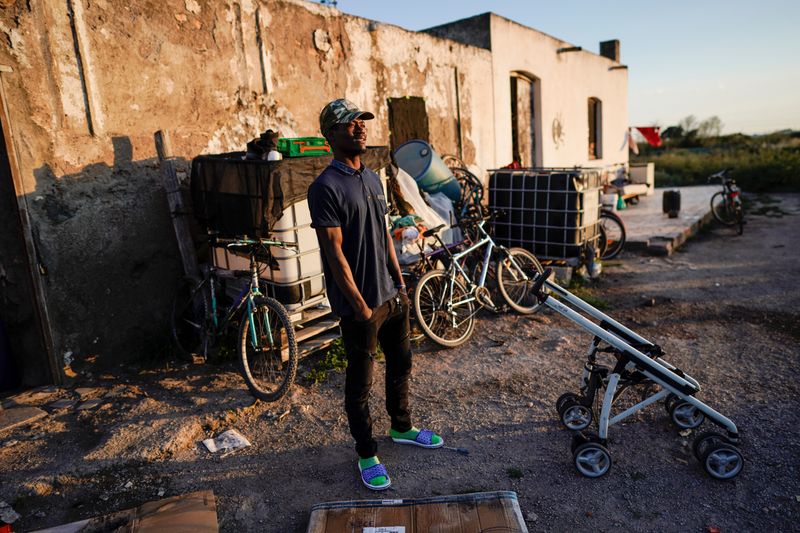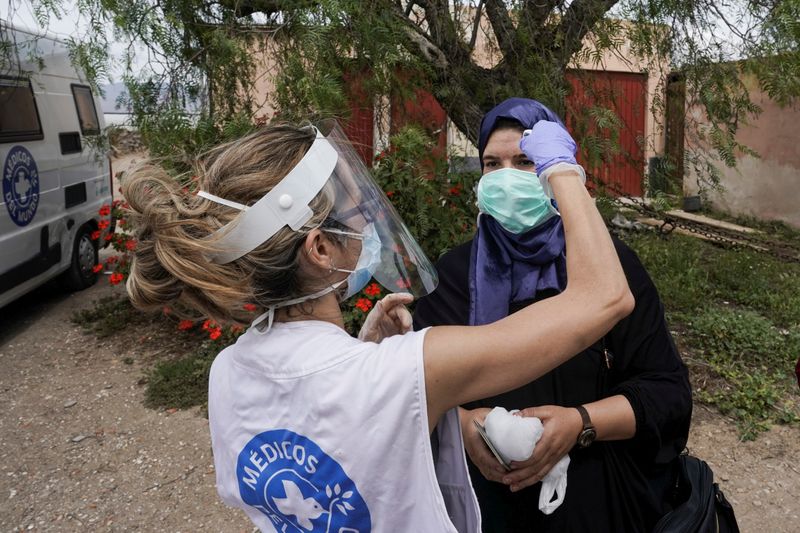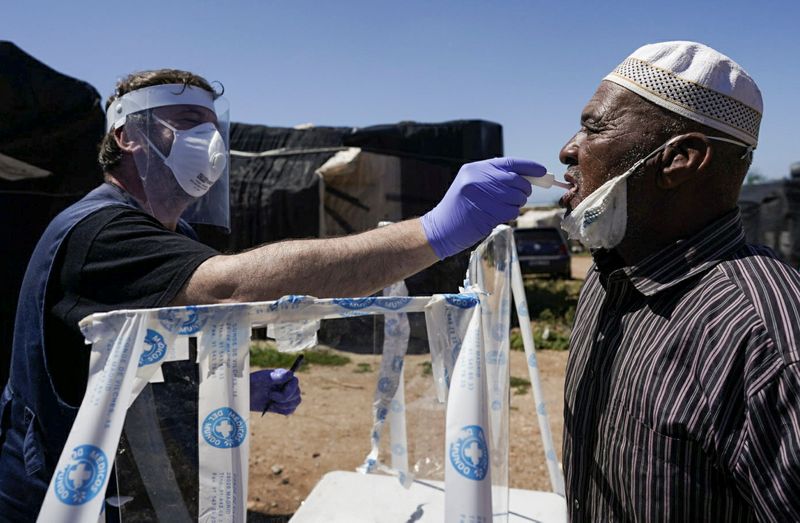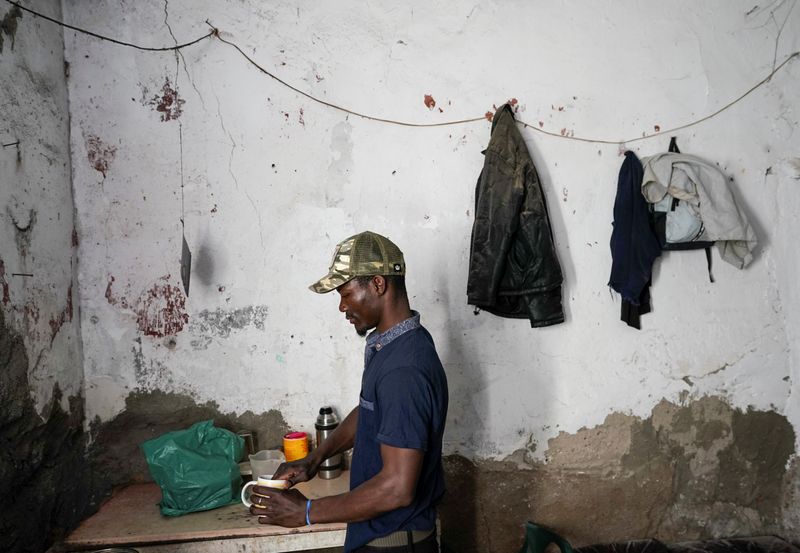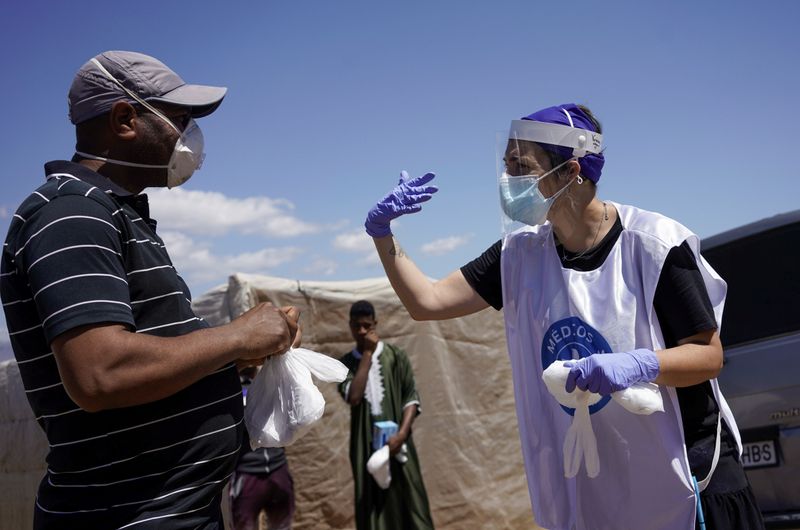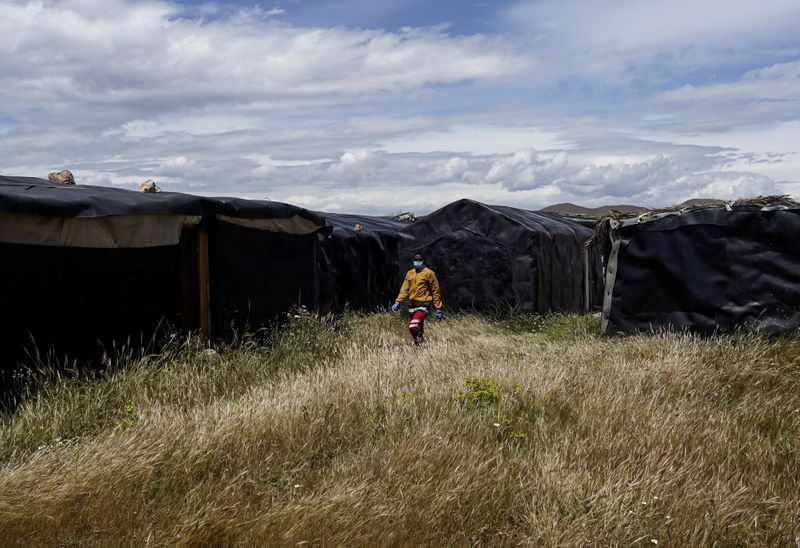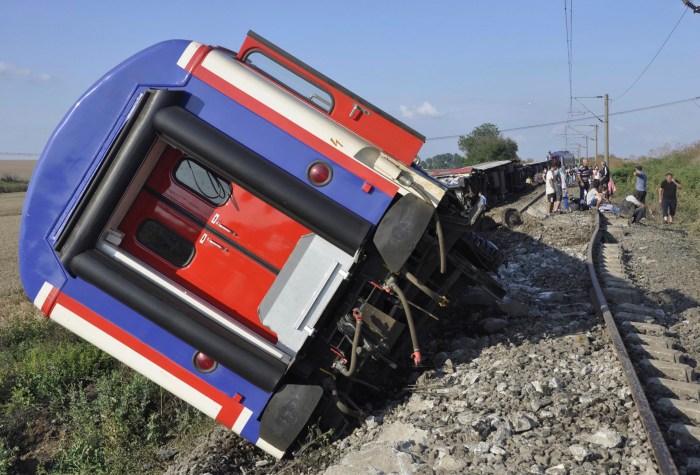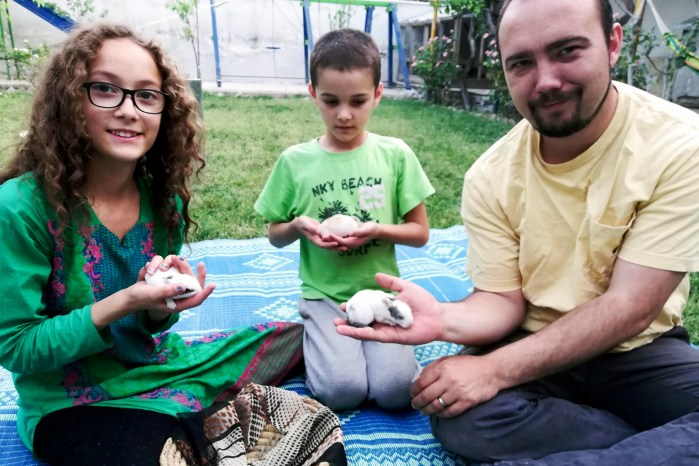NIJAR, Spain (Reuters) – In shanty towns outside the polythene-covered market gardens of Almeria in southern Spain, doctors’ charity “Medicos del Mundo” provides health checks and food to migrants left without work during the coronavirus outbreak.
Restrictions on how many can travel per car implemented in mid-March as part of Spain’s strict lockdown measures mean many migrants cannot reach fields to pick produce.
Foremen usually pick up workers from the towns to take to the fields, but now drivers must restrict how many go by car or face fines from police.
“There’s no room to take everyone, the boss would rather take just one or two,” said Adama, a migrant from Mali who came to Spain by boat 12 years ago.
“We’ve been a long time without work – nearly two months. We’re staying at home with no work, nothing,” he added, standing in his makeshift house.
Spain has seen a recent immigration surge as it enjoyed a spurt of economic growth and the agricultural sector in the south has long relied on migrant workers to pick crops.
In Nijar municipality in Almeria, the migrants – mostly from Morocco and sub-Saharan Africa – line up in scrubland beside a busy road to get temperatures taken.
Health workers, sometimes using the native French of some migrants, ask them to stand two metres apart in the queue.
Nearby, another charity worker wearing a face-shield and gloves hands out oil and milk. In the nearby settlements, dwellings are made of wooden frames wrapped with tarpaulins.
“Medicos del Mundo does not usually hand out food,” says Vladimir Morante, the charity coordinator for Andalusia.
“But given the situation we have no choice.”
Up to 6,000 migrants live in these makeshift settlements, says the charity. Medicos del Mundo has stepped up its work during the lockdown, distributing nearly 3.5 tonnes of food in the last two days. They are also handing out masks and bleach.
The health workers set up tables with makeshift perspex shields and ask the migrants questions about their health while telling them about measures like social distancing.
However, living in such crowded conditions with so many people to a dwelling makes it hard.
“Being able to apply those measures is practically impossible,” says Morante. “They live totally packed, it’s impossible to maintain a safe distance.”
(Writing by Sonya Dowsett; Editing by Andrew Cawthorne)

